Samantha Fish: “I did away with pedals... It made me a better guitar player. I was using them as a crutch rather than finding good tone in my hands“
The Kansas City blues-rock star on committing to tone, the magic of the Deluxe Reverb, and a bold new pop-inflected sound that was years in the making

Press play on Samantha Fish’s new album, Faster, and you will recognise that voice immediately. You’ll recognise the guitar, too. It’s blues-rock electric guitar played with a louche, devil-may-care feel.
But Faster sees Fish put the heady top-spin of pop on her sound. This one brings her vocals to the fore, instructing the guitar when to retreat and when to advance. The synth and electronic elements that were hinted at before are used in a way that in theory might sound like an act of trespass on the typically settled aesthetic of Americana rock, but they make perfect sense on the record.
Then you read the credits. Eight of its 12 tracks were co-written with Martin Kierszenbaum, who also produced and performed on the record. Now it makes sense.
Having worked with Lady Gaga and Sting, Kierszenbaum is a master at finding the pressure points in an artist’s sound and knowing where to add digital elements that might hitherto be considered alien. They even found a way to have rapper/singer/songwriter Tech N9ne guest on Loud and it all made sense.
Martin's got a real keen sense for production, and for the quality of the record, and how I wanted to stylise it. He really listened. He helped me take some chances
As Fish joins us on Zoom, she explains how this was a stylistic choice that she had been building towards for some time. It took meeting Kierszenbaum to make it a reality. That writing partnership opened the floodgates. Fish, a huge Nine Inch Nails fan, also got to bring those influences to bear on the record.
“They are just incredibly creative, utilising something that you might not even consider an instrument, and they would find the texture for it,” she says. “It could be just beating a pole against a wall and adding a bunch of reverb to get this incredible sound. When you think about music in those terms, it opens you up to doing all kinds of crazy and wild things.”
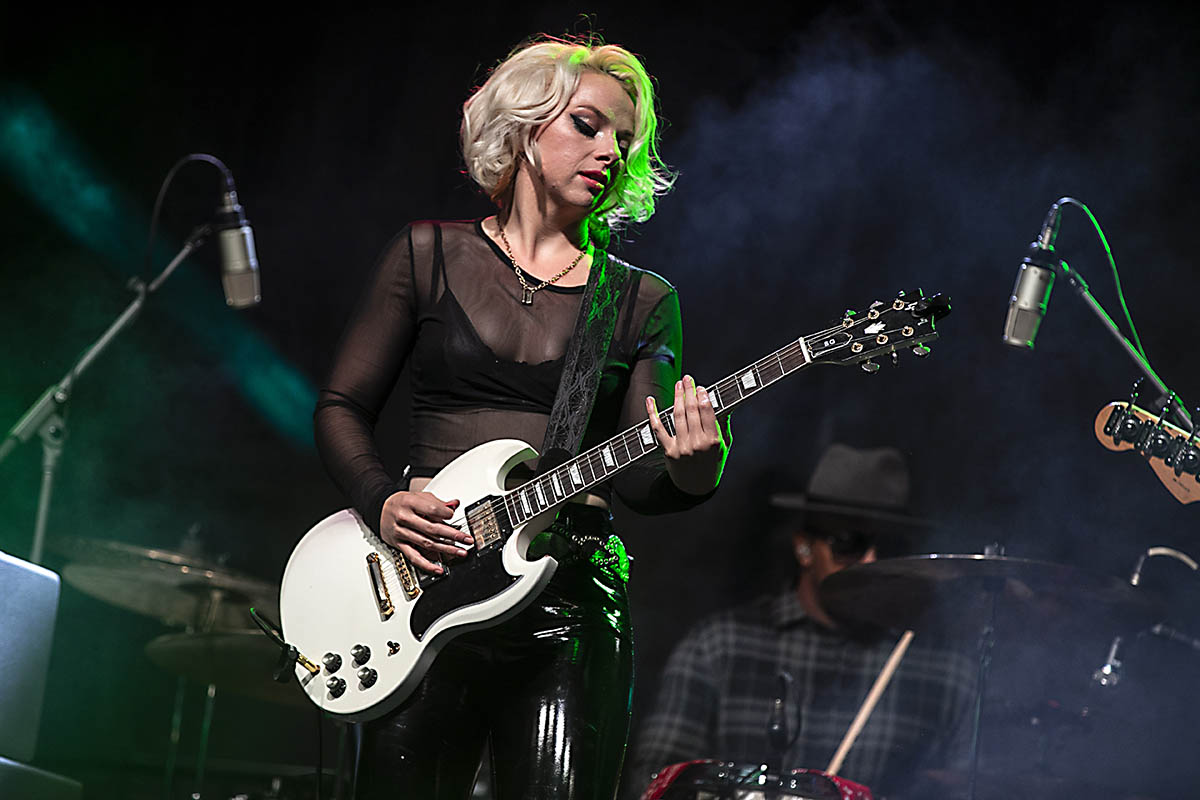
That sense of anything being up for grabs was enhanced once NIN alum Josh Freese was drafted in on drums, with Diego Navaira of The Last Bandoleros rounding out the rhythm section.
Get the MusicRadar Newsletter
Want all the hottest music and gear news, reviews, deals, features and more, direct to your inbox? Sign up here.
But somehow, in all of this, the quintessence of Fish’s sound remains unchanged. As she explains here, that’s because she has the good sense to listen to her gut.
The production on this record is really something special. It sounds amazing. How did you get Martin onboard for this one?
“Martin has ties in Kansas City and so do I for obvious reasons, and we got connected through a mutual friend last summer. We just got to talking and getting to know each other, and as our friendship progressed, I realised, ‘Man, this would just be a great opportunity if he wants to produce the record.’
“I honestly feel like I have been going in the direction that we landed in for a long time. I needed that right partner to help facilitate what I was looking to do. Martin is an expert at making records like this. His production style and approach was a little different to anything that I have done before, just as far as pre-production goes – we were incredibly well prepared when we walked into the Village last winter, and I think that was a little bit of a change for me, just having that level of knowing exactly where we were going.
“He’s got a real keen sense for production, and for the quality of the record, and how I wanted to stylise it. He really listened. He helped me take some chances.”
That's the thing about this record, it has risks on it, and it foregrounds your voice, too. We always talk to you as a guitar player but you are a vocalist, too. That feels all the more important on this.
“I am a fan of albums being centred around the voice. I feel like people really connect with vocals. That’s how you tell a story. That’s how you deliver the lyrics, so capturing a really clear, emotive, texturised vocal, I feel like he really captured what my voice sounds like in the studio, and we used the best microphones. We were in one the best studios. We had all of the tools to really capture it.
I am a fan of albums being centred around the voice. I feel like people really connect with vocals. That’s how you tell a story
“My goal with making albums, regardless of what style I want to work into it, I think the focus always has to be my voice and my guitar, because are the connecting threads throughout the songs themselves. It's kind of thematically how I keep it all glued together, and realistically, how I bring the roots and blues to something. If I had approached it a little differently, with different vocalisation or playing style on the guitar, it could be completely different. I really think the vocals – more so than any of my other work – really are far in the front. I can agree with that.”
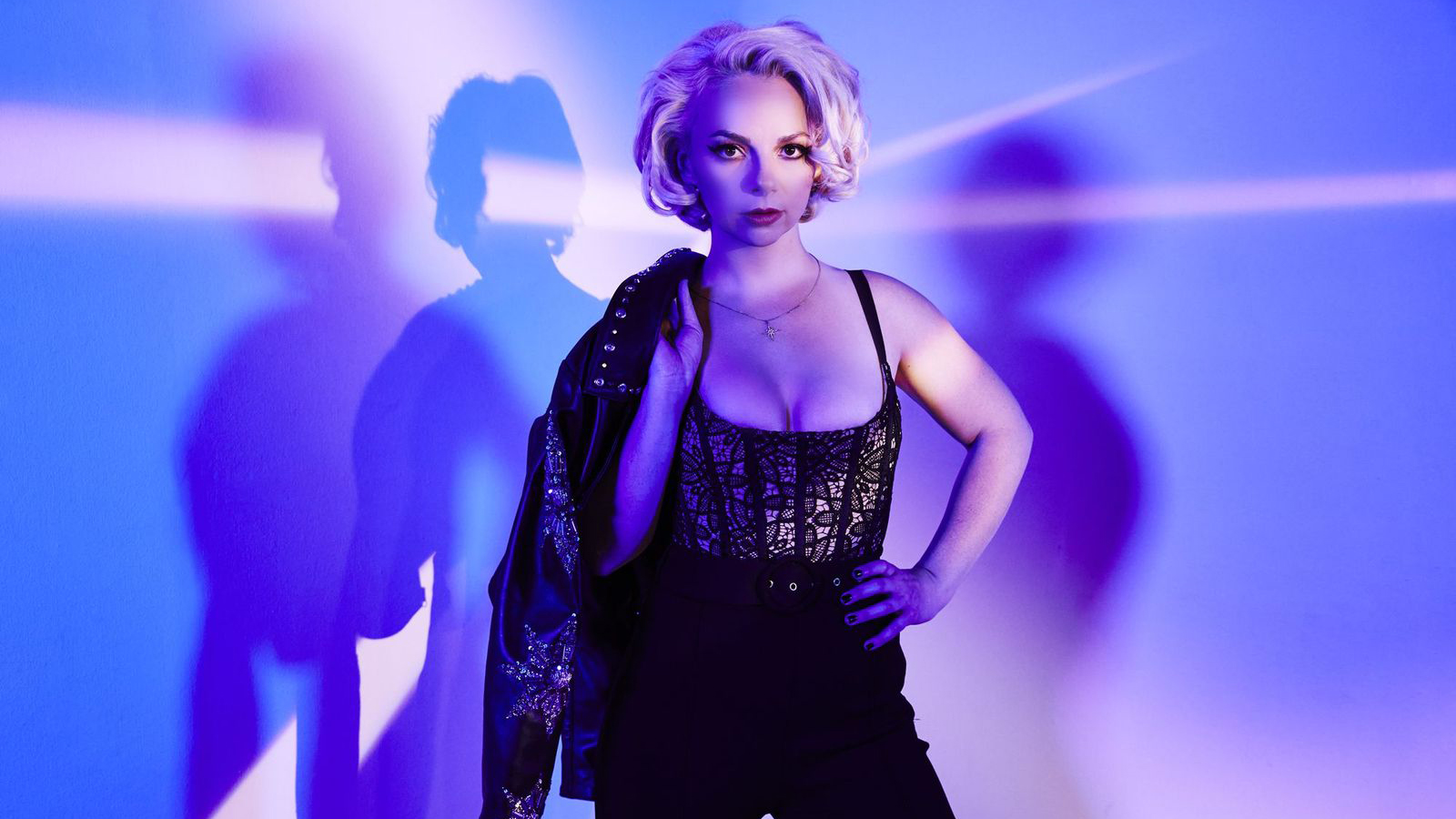
And there are some bold stylistic choices. There can be a sort of creative conservatism within rock and blues, and maybe that can be a good thing in grounding it but other times it can be a little stifling. How did you approach that balance?
“Well, Martin was really conscious of the duality of what I am trying to do, and I think what a lot of artists are trying to do. You are going for something new. You want to achieve something that’s different. You want to grow and expand, but you also want to remain true and authentic to yourself, and to the style and sound.
“You don’t want to completely jump out of the realm of who you are because that is what makes it special, but I think that is where you find a unique voice, when you are trying to straddle that line of creatively going into new territory but also holding on to something that is authentic to you. I think that's how you do something that sounds different from everybody else. That’s how you find your voice.
“For me, it's just a gut instinct. If I don't like something, or if it doesn’t hit my ear right, then I’m pretty vocal about it. I'm just trying to make something that I think sounds good, that’s something that I can be proud of, and hope that that taste carries over to the listener and the fan.”

Sure, you have to trust your sensibility…
“Yeah, and you’ve got to be around people that trust you, too. We are all in this together. Martin was really, really great about this because, at the end of the day, he wanted me to be proud of it, and so he wasn’t forcing any ideas [one me]. Yeah, I took some chances and trusted him sometimes, but then sometimes he trusted me to route it back to what I know.”
Was there a moment during the writing process when you thought, ‘Okay, this is a little different. This is happening’?
“Probably that first meeting that we had. We actually got together in a writing room in Kansas City. It’s funny, you know we went to Strange Music; that’s where Tech N9ne’s headquarters are. We used their writing room. When we were writing the song Hypnotic, I played that riff and I wanted the melody to follow it.
“I sang the melody and it was this high falsetto thing – something that I had never done before on a record. I tend to keep things in my lower register. Last year I started writing things that were kinda high, and just in a different place for me.
I have been using synthesisers since Kill Or Be Kind in some regard. Not as heavy as this record. But I wanted to really dive into this because it is fun
“The song itself, I came in with a simple thing and we created this really cool electric bop around it and that is when I knew that this was definitely different for me, but while it’s modern, it is still rooted in how I am, it’s just different to what I’ve done. That’s how you make new art. That’s how it is!
“But every album I’ve done, I’ve had a moment like that, when it’s like, ‘Wow! This is different to anything I’ve done.’ I like making albums like that. I like showcasing that growth. But Hypnotic was probably an ‘a-ha!’ moment.”
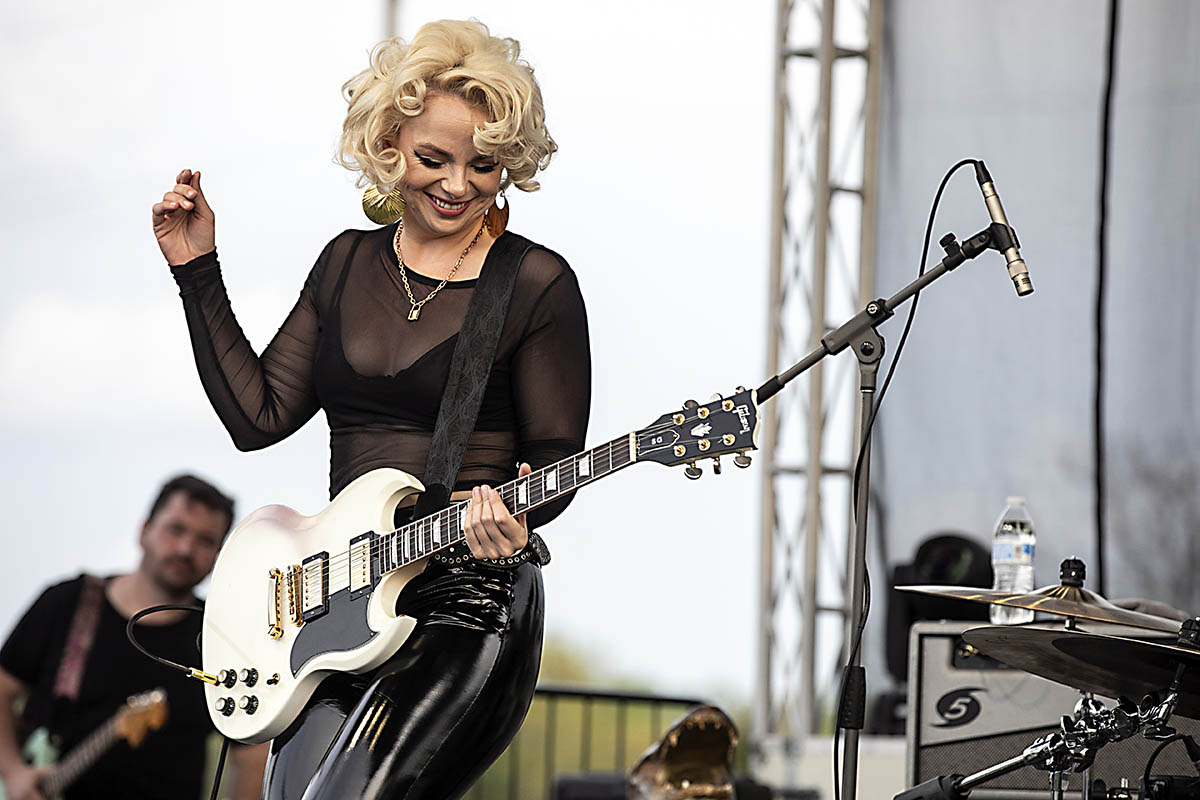
There is more synth and electronic music on this than ever before. It’s like this is to you what Eliminator was to ZZ Top. Martin has a good ear for that sort of thing. He has that vocabulary of music, conversant in analogue and digital.
“He does! He’s very talented in that regard. Him having the knowledge of synthesisers and his ability to use – like you said – real instrumentation and digital interfaces, and digital synthesised sounds, that was always a priority of mine.
“I have been using synthesizers since Kill Or Be Kind in some regard. Not as heavy as this record. But I wanted to really dive into this because it is fun for me. It sounds different. It is a different spin on it. And he did it. He made it feel authentic and I think that’s an important thing.
“This still showcases the guitar but it’s this cool pad underneath it that modernises it and not in a way that is so trendy… I think think it’s timeless, which is what I am always trying to do.”
Were there any particular influences outside of the blues and blues-rock world that were particularly important when writing this album?
“Well you can’t help but think of Lady Gaga when you are working with Martin, and Gaga was in the back of my head because he did The Fame. So, of course, that’s at the back of my mind but then we got the Tech N9ne feature and that was really cool. That was outside the Americana, blues and rock world that I have been in.
“Let me think… Who else? Well, of course! Nine Inch Nails was on my mind a lot because I knew I was going to be working with Josh Freese. I am a huge Nine Inch Nails fan, just for the textures. I love that industrial rock, and he really utilised all different types of instrumentation that just gave them such a unique sound, a real dark quality.
“Knowing I was going to be working with Robert Orton, I was looking at his list and I love the Lana del Ray records. She’s got a real dreamy quality to her work. I had some of these more poppy influences in the back of my mind on some of the stuff, but, again, I am rocker, so going into the Village and knowing the Rolling Stones recorded here, and Fleetwood Mac did Tusk – they built a whole studio wing for Stevie Nicks! I had a lot of different influences but it was nothing for me that was way out of the realm of normalcy! Because those are always in my head!”
And of course it’s still a guitar record; you are quite literally licking a Gibson Firebird on the cover! Some of the guitar tones are wonderful. It’s an audiophile record. Like on All Ice No Whiskey, that hot gritty tone, and how it ducks out during the verse and comes back in….
“This is where producers are great, too, because they know when to tell, ‘Okay, stop messing with it. This is the tone. Commit to the tone. This is our tone.’ That was the connective thread throughout the album.
“We really went in meat-and-potatoes with the guitar sounds. We had all these lush arrangements for synths and keys and everything, but when it comes to the guitar, that’s a guitar direct into an amp. And then it’s tucked back in some of the verses, and then we’d double it for some of the choruses, and it’s really that simple an approach.
“It’s an SG into a Deluxe and a Super Reverb, favouring that Deluxe, and then we’d double them and put the parts on top of each other to fatten it up when we needed to. That’s when it comes down to a good mix, and we had Rob Orton mix the album and, honestly, he is the best.”
When you find something that sounds good and feels good, that’s your personality. Like, we found that tone and it was like, ‘Okay, this is the personality of the record‘
That helps. We were talking about the creative risks earlier but look at that, that’s totally old-school, and that idea of committing a guitar tone to a record sounds so logical and appropriate.
“Honestly, I’ve had records before where I have had 15 different amps in the room, and all my pedals out there, and all the guitar options, and you sit there and you tweak it and you change it. But really, when you find something that sounds good and feels good, that’s your personality.
“Like, we found that tone and it was like, ‘Okay, this is the personality of the record.’ Everything else is dressing up the song but this is the commanding voice throughout, this guitar tone, and it is in your face, it is exactly what this record should be. So why mess with a good thing!?”
You’re speaking to us from Sweetwater, which is the Horn of Plenty when it comes to gear, but do you think guitar culture gets a little over obsessed with the gear and this stops us seeing the wood from the trees?
“Well my relationship with gear, and changing things up, I am very much a person who, if I find something, and I have an amp combination that I like, I am sticking with it. I have a pedalboard that I like and I am sticking with it.
“But there are times when we find ourselves stifled creatively, and sometimes a new guitar, or rather, I think, new tunings, which always means another guitar onstage because I can’t be detuning guitars, but sometimes a new guitar with a little bit of a different tone, or a new pedal, will inspire some kind of new creativity that maybe wouldn’t have come out of the ether.
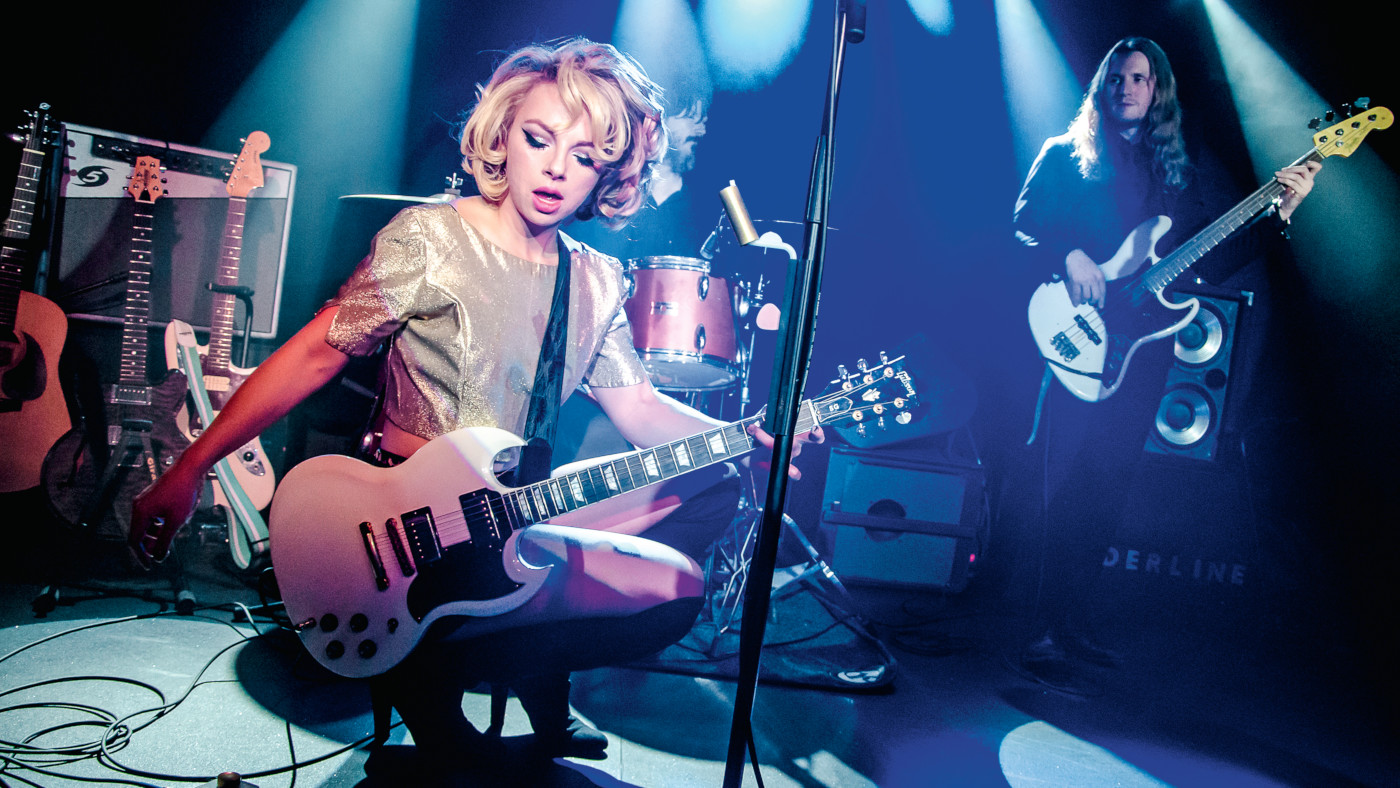
• Samantha Fish: “Best tip for live sound? Turn the amp up!”
“Sometimes you need these little things. For me, I’ll be messing with this new pedal and it’ll spark a song idea, so in that respect, I think it’s kind of cool because you have got these little tools to spark creativity, and that’s what I like to utilise it for.
“I don’t like to lean too heavily on it. I really think the most important thing is, if I couldn’t play with a pedalboard tonight, I would find the best tone I could through the amp and my fingers, the guitar, the amp, they have to be the thing that really drives it. Everything else I feel like you are utilising it to help with creativity and tone, and help with the dynamic and the drama of the show.
“I dunno, I am not crazy-obsessed with gear but I do like to add little things just to spark an idea and help with the drama. Sometimes when you are up there playing guitar for two hours, you want to do something that’s going to freak people out! ‘Okay, I’ve been doing this, let’s add another layer to freak people out!’ That’s what I use it for.”
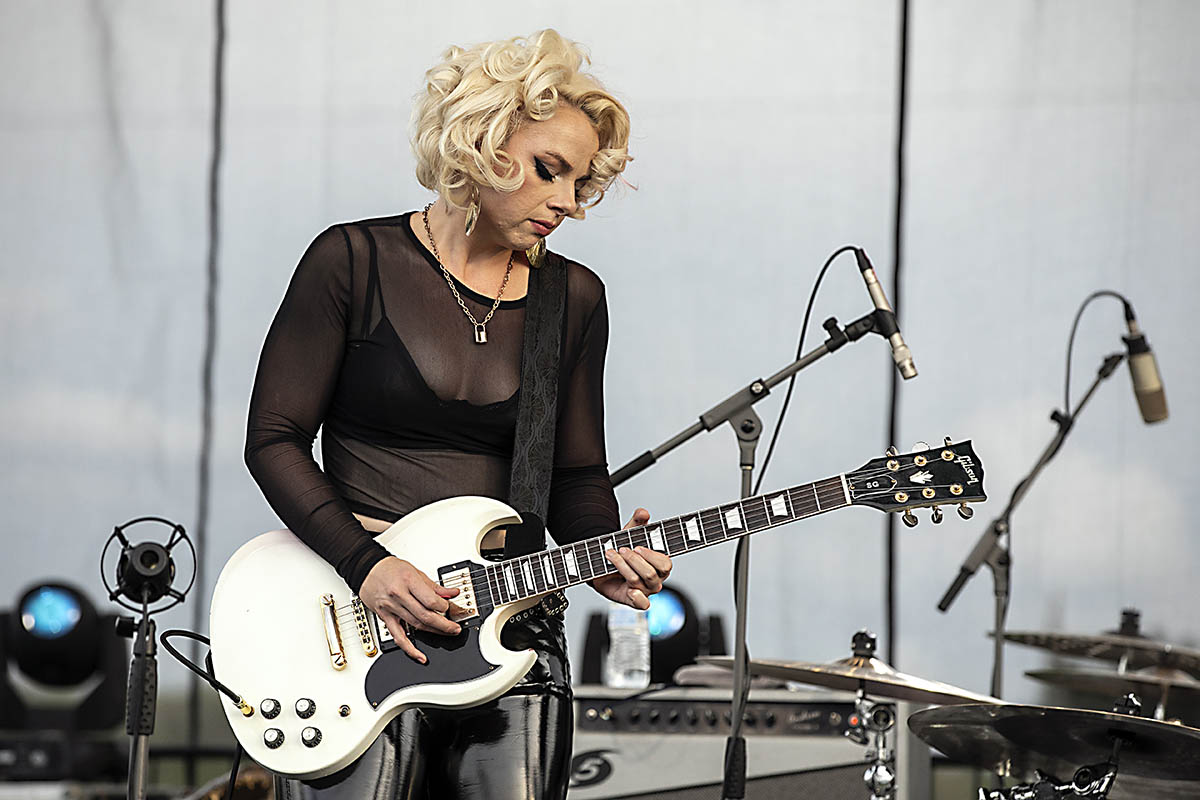
And there are gear conversations and processes we have when writing, and then when performing, and it’s a slightly different mindset.
“Yeah, I’m specifically talking about my pedalboard but I also understand that I am very much the kind of person who, if I find an amp I like, I really like to stick with it because to me that’s one of the concrete, solid things I can count on. And then the guitar that I have, I can really count on that.
I don’t like to stress out onstage. The more things you add in, the more things can go wrong
“With the pedals, if I am not crazy-comfortable with something and I have got to be down on the ground tweaking knobs, it is taking me out of what I feel like I am supposed to be doing, which is really delivering a performance. It can really take your focus away.
“I like to have things that I am really comfortable with, that I know how to operate, and sometimes that means I am not constantly switching new things in. I am really careful and pragmatic about how I make additions to the show. I’m not up there tweaking it too much. It can be complicated, y’know! And I don’t like to stress out onstage. The more things you add in, the more things can go wrong.”
So true. Fewer moving parts the better. All these things are just tools to shorten the distance between the sound in your head and what’s coming out the speaker.
“I think you are right. The most important part is the performance and we utilise these things to help us colour and texturise the performance itself, but the most important part is what your hands are doing. If you stripped all that stuff away from me, today or tomorrow, I should be able to do what I need to do.
“I did away with pedals, probably about five years ago. I wasn’t using anything, just going straight into an amp. Before that, I had this massive pedalboard but I realised I was using it as a crutch rather than finding good tone in my hands. I was really leaning heavily on pedals and effects to get that out, so I did away with everything and really challenged myself for a few years, just getting the guitar in my hands and the amps to do the work for me.
“It made me a better guitar player. And it made me think you really should be able to do both. Shit does happen! Sometimes, you get to a festival and you get up there and nothing is working, and you’ve just got to get up there anyway! [Laughs]”
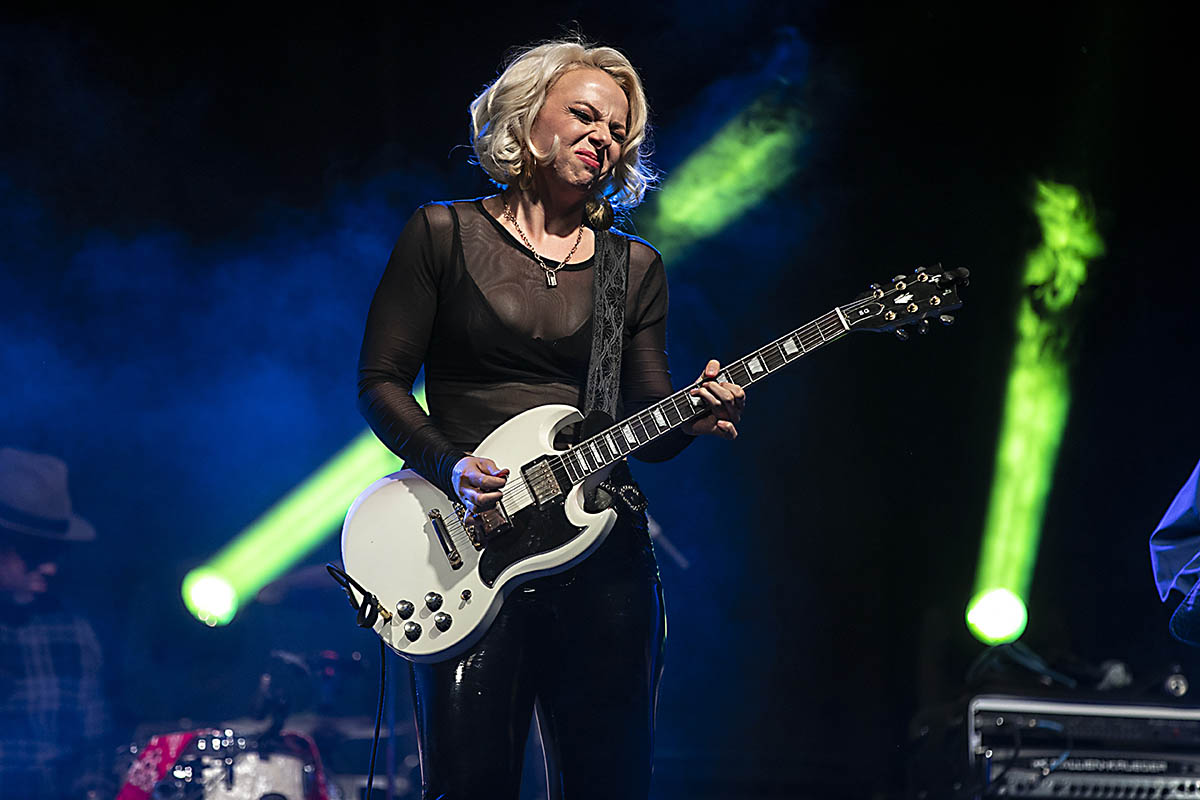
You’ve always managed to keep this sort of live energy in the recording. What were the sessions for this album like?
“The records are all really live. I mean, the way I like to approach it, is give me several pass throughs. The first time or two you are just getting comfortable in your head. For me, I don’t really like to map out my solos 100 per cent. I like to let the moment dictate it because I feel like sometimes you come up with things and it’s like, ‘Oh man! I wouldn’t have done that if I had really heavily planned this out.’ And you don’t always have the passion when you really heavily map things out.
“I get a skeleton idea of where I want to take a solo. I know how much time I am going to have. It’s a dramatic thing; it is about dynamics. I don’t want to start at the top. I like to start at the bottom and work my way to the top, to the glory notes, but for me, it’s just part of the conversation. It has got to be conversational.
“I like to take a couple of passes through, and it’s like that with vocals, too. I like to just take the song the whole way through and do it like a live performance, and then if you have troubled spots, or if there is something you want to do… Like, there are some difficult spots. Maybe I do want to hit one note here and if you can’t get it in one single pass we can find it from somewhere else.
“But more often than not, the solos and the vocals are passed through. Because I like to capture that live performance feeling. That’s what people like about our shows. They like that energy, and so that’s always the challenge. That’s the goal.”
You also worked with Josh Freese on this record.
“Yeah, he is amazing! [Laughs]“
He is. We talk about pedals and all that but maybe the best effect the guitarist can find is having a great drummer.
“Well yeah! The drummer is leading the band. I’ve always felt that. The drummer has so much responsibility; they have to be rocking in order for us to rock. And Josh Freese is one of the best. He really just came in and nailed this album – super professional, just brought so much dynamics, different things, really creative.
“I really, really liked working with him and when he hits, everything sounds wonderful. Everything sounds perfect when he hits it. We were in the studio listening back to the drums and it was like, ‘Did you hear that snare!? That’s perfect! That’s with nothing on it. No effect. No studio magic.’ Like, he knows how to play in the studio and his shit sounds great. And I love his stories.
Josh Freese has played with everybody, so I was trying not to geek out and get ahead of myself. I was trying not to fannish but I did have to ask him, ‘Is Trent Reznor nice?’
“The guy has got a million different stories. He has played with everybody, so I was trying not to geek out and get ahead of myself. I was trying not to fannish but I did have to ask him, ‘Is Trent Reznor nice?’ [Laughs] ‘Yeah, he’s cool.’ ‘Okay… thanks!’ I did geek out a little bit but he has played with a lot of people who I look up to and love, so it’s a little bit intimidating, but nice to be in the studio with someone like that. He’s really nice, a great player and a cool guy.”
When else can you ask these questions? He is on the record. But it is like you say, the drummers really do set the table for us as players.
“Yeah, the drummer is really are out there leading the charge. I have got a great drummer right now on the road with me. Her name is Sarah Tomek and she’s killer. I’ve always had great drummers. And this album is just pushing it to another level. But yeah, the drummer is in charge. We all follow somebody and that’s the guy. I would rather follow the drummer than him follow me!”
Did you use any other guitars besides the SG?
“Let me tell you what gear I used. Okay, I’ve got it here all written down.”
Good, because we do need the list. It is contractually obliged in these conversations.
“Of course! We used the following gear: a Gibson SG for most of the album (which is mine); a Fender Jazzmaster reissue for select parts on the album; a Gibson ES-335; and then a Fender Butterscotch [Blonde] Telecaster.
When they told me the list of amps I had I just knew that the Deluxe was the one I was going to use, because for me it’s just got a perfect tone
“There were a few other guitars on the album that Martin played – a Fender Strat, a Gibson Les Paul Custom ‘Black Beauty’. The amps we we used were a Fender Deluxe and a Fender ’65 Super Reverb, and we blended both of those amps, favouring that Deluxe more. The Deluxe just sounds great. And the microphone we used was a Neumann U87.”
“When they told me the list of amps I had I just knew that the Deluxe was the one I was going to use, because for me it’s just got a perfect tone. In a live setting, I’ve had experiences where maybe they’ve been a little quiet on certain stages, but you can crank the hell out of them and they just sound so sweet. I just knew when they told me the list of amps that that was going to be the one.
“It matches my guitar, my history. I used Supers a lot live, but honestly, these days I am preferring the Deluxe no matter what. I know they are a little smaller but they are real mighty.“
- Faster is out 10 September via Rounder.
Jonathan Horsley has been writing about guitars and guitar culture since 2005, playing them since 1990, and regularly contributes to MusicRadar, Total Guitar and Guitar World. He uses Jazz III nylon picks, 10s during the week, 9s at the weekend, and shamefully still struggles with rhythm figure one of Van Halen’s Panama.
“Its mission is simple: unleash the power of any amplifier or line-level source without compromise”: Two Notes promises a “watershed” in tube amp control with the Torpedo Reload II
MusicRadar deals of the week: Enjoy a mind-blowing $600 off a full-fat Gibson Les Paul, £500 off Kirk Hammett's Epiphone Greeny, and so much more















